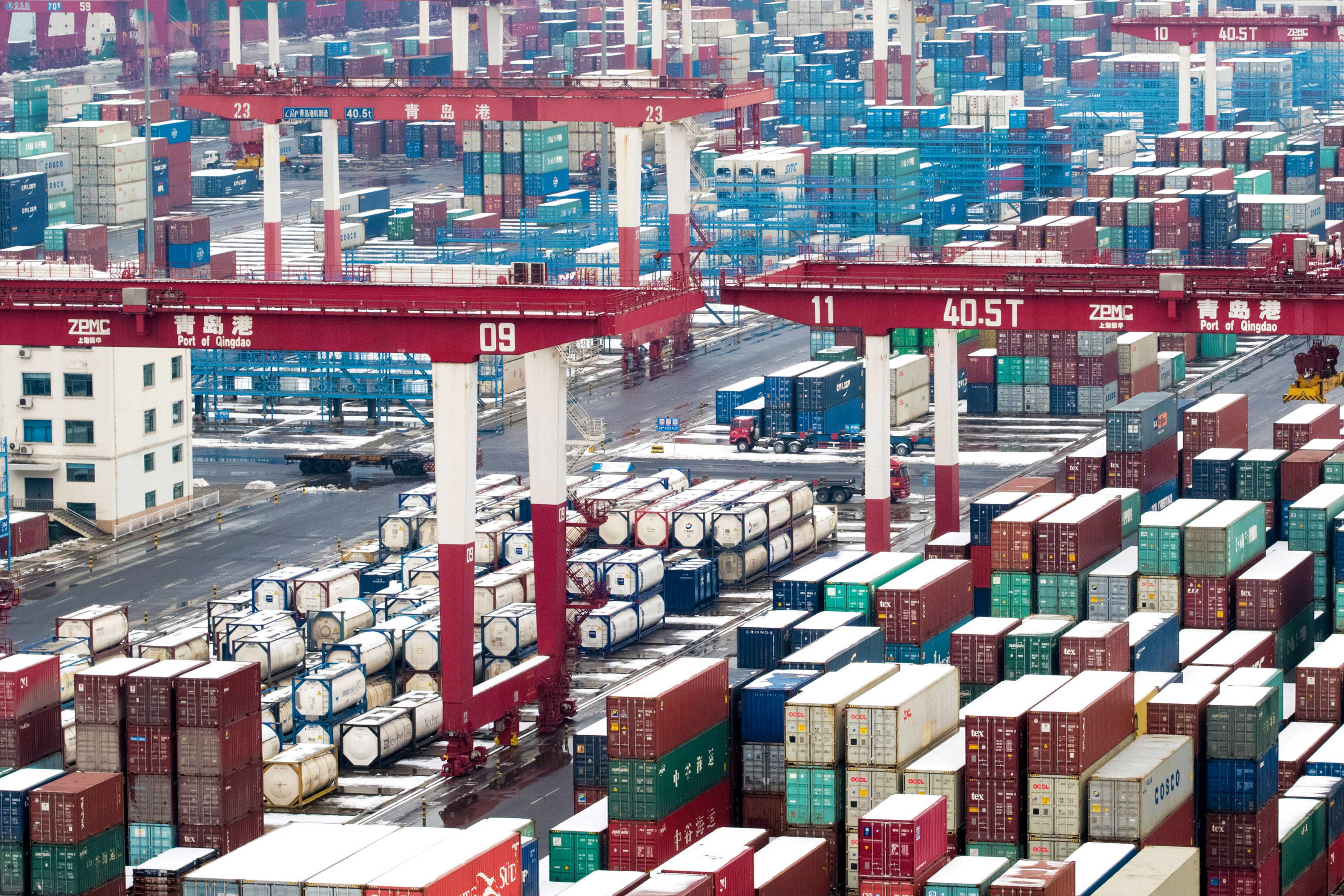
Chinese imports slowdown during Jan-April 2024
NEW DELHI : India’s efforts to boost manufacturing and cut its dependence on Chinese imports appear to have met with some success with merchandise imports from the neighbour declining in the three months since January before flattening out, according to data from the Commerce Ministry.
However, the overall bilateral trade remains heavily skewed in favour of China, with Indian industries across sectors significantly dependent on Chinese manufacturing.
Chinese goods imports fell from $8.96 billion in January to $8.09 billion in February, $7.75 billion in March, and was flat at $7.79 billion in April.
China’s share in India’s imports too declined during January-February, despite a rising trend in overall imports.
During January, while India’s total imports stood at $53.35 billion, China’s share stood at 16.79%, which fell to 13.46% in February when total imports rose to $60.11 billion.
However, China’s share in India’s imports stood at 13.53% and 14.4% in March and April, respectively, while imports stood at $57 billion and $54 billion respectively.
During April, China took the largest share in India’s import basket, followed by Russia (9.7%), the United Arab Emirates (6.14%), the US (5.9%) and Saudi Arabia (5.9%).
India largely imports crude oil from Russia, the UAE and Saudi Arabia.
Cutting non-essential imports
Top imports from China include telecom and smartphone parts, laptops and PCs, plastic, iron and steel, chemicals, non-assembled cells, lithium-ion batteries, fertilizers and other electronic goods like radio transmission and television apparatus parts.
India has been working to cut imports of non-essential consumer and electronic goods from China in a bid to narrow a trade imbalance.
“The rising trade imbalance with China is a concern. In some strategic sectors like renewable energy, electronics, and pharmaceuticals, we are dependent on China for raw materials. However, there are other non-essential sectors where such imports could be cut down,” said a senior official, who spoke under the condition of anonymity.
“Dumping of cheap Chinese products into the country will not be encouraged. Measures in terms of anti-dumping duties in certain steel products, industrial laser machinery, wheel loaders, and gypsum tiles, among others, have been taken to protect domestic manufacturers. However, for India to significantly reduce its trade imbalance with China, local businesses need to make a conscious decision to bring down their reliability on Chinese products,” the person added.
A commerce ministry spokesperson didn’t respond to emailed queries.
Rise in exports
The trade imbalance is stark. India’s exports to China rose from $15.31 billion in 2022-23 to $16.67 billion in 2023-24.
By contrast, India’s imports from China rose from $98.51 billion in 2022-23 to $101.75 billion in 2023-24.
Overall, China was India’s largest bilateral trade partner in 2023-24.
During 2023-24, bilateral trade between India and China stood at $118.4 billion. During the fiscal year, imports increased 3.24% to $101.7 billion and exports rose 8.7% to $16.67 billion.
For 2023-24 as a whole, India’s merchandise exports stood at $437.06 billion, down from $451.07 billion during the previous fiscal.
Goods imports fell to $677.24 billion from $715.97 billion recorded during the same period.
“Over the last 15 years, China’s share in India’s industrial product imports has increased significantly, from 21% to 30%. This growth in imports from China, has been much faster than India’s overall import growth, with China’s exports to India growing 2.3 times faster than India’s total imports from all other countries,” said Global Trade Research Initiative (GTRI), an economic think tank, in a recent report.
The report said there is a significant reliance on Chinese imports across sectors like electronics, machinery, chemicals, pharmaceuticals, and textiles, with some sectors relying on as much as 70% of Chinese imports.
Reducing this reliance, it said “is imperative not only to mitigate economic risks but also to bolster domestic industries and reduce dependency on single-country imports, especially from a geopolitical competitor like China”.

